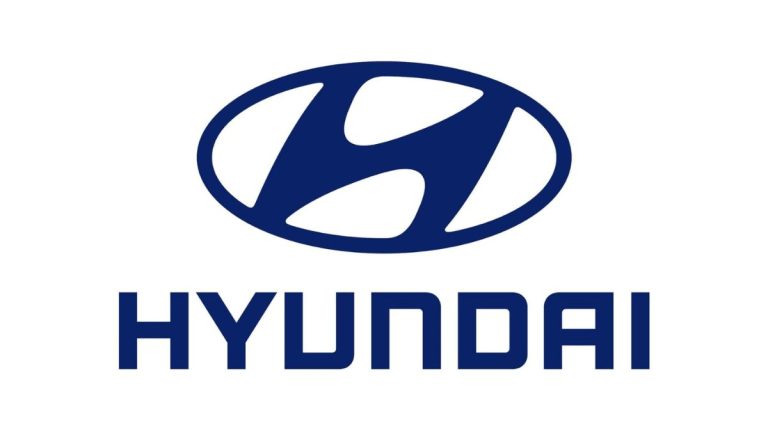Hyundai has become a household name, synonymous with innovation, quality, and reliability. Its journey from a modest South Korean company to a global automotive giant is a testament to strategic thinking, resilience, and a relentless drive for excellence. In this article, we’ll explore Hyundai’s story, focusing on its rapid growth, global success, and enduring influence in the automotive industry.
Hyundai’s Humble Beginnings
Founding of Hyundai Motor Company
Hyundai Motor Company was founded in 1967 by Chung Ju-Yung in South Korea. Chung, a visionary entrepreneur, envisioned creating affordable and reliable vehicles for the masses. Starting as an assembly line operation, Hyundai faced significant hurdles, including limited resources and skepticism from established global brands. Despite these challenges, Chung’s determination laid the groundwork for what would become a global powerhouse.
The First Hyundai Car
In 1975, Hyundai introduced its first domestically produced car, the Hyundai Pony. Designed with assistance from Mitsubishi, the Pony symbolized Hyundai’s ambition to create affordable yet functional vehicles for South Korea’s growing middle class. The success of the Pony set the stage for Hyundai’s expansion, proving the company could compete in the domestic market and beyond.
Strategic Expansion in Global Markets
Penetrating the American Market
Hyundai made its U.S. debut in 1986 with the Hyundai Excel, a compact car known for its affordability. While initial sales skyrocketed, the company faced criticism for poor quality and reliability. However, Hyundai turned this around by investing heavily in quality control and offering an industry-leading 10-year/100,000-mile warranty, restoring consumer confidence and driving sales growth.
The European Market Approach
Hyundai adopted a tailored strategy for Europe, focusing on design, performance, and efficiency to cater to European tastes. Establishing manufacturing facilities in countries like Turkey and the Czech Republic enabled Hyundai to reduce costs and offer competitive pricing. This approach paid off, as Hyundai became one of Europe’s top-selling car brands.
Innovations in Technology and Design
Advancing Automotive Technology
Innovation has always been at the heart of Hyundai’s strategy. The company has consistently invested in R&D, resulting in groundbreaking advancements in safety features, autonomous driving technology, and connectivity. Hyundai’s development of eco-friendly vehicles, including hybrids and electric cars, underscores its commitment to sustainable innovation.
Modern Design Philosophy
Once criticized for its uninspired designs, Hyundai transformed its aesthetic under the guidance of world-renowned designers. The introduction of the “Sensuous Sportiness” design philosophy marked a new era for Hyundai, making its cars more visually appealing and competitive with luxury brands.
Building a Reputation for Quality
Overcoming the Early Quality Criticism
In its early years, Hyundai faced harsh criticism for subpar quality. Determined to change this narrative, the company revamped its production processes and introduced comprehensive quality control measures. Offering extended warranties showcased Hyundai’s confidence in its products and won over skeptical consumers.
The Rise of Hyundai’s Reliability
Today, Hyundai is consistently ranked among the top automotive brands for quality and reliability. Its vehicles frequently earn high marks in safety ratings and consumer satisfaction surveys. This reputation has been bolstered by numerous awards, including accolades from J.D. Power and the Insurance Institute for Highway Safety (IIHS).
Contribution to Green Mobility
Focus on Electric Vehicles (EVs)
Hyundai has emerged as a major player in the EV market with models like the Kona Electric and the Ioniq series. These vehicles offer impressive range, advanced features, and competitive pricing, making EV technology accessible to a broader audience.
Investing in Hydrogen Fuel Cells
Beyond electric vehicles, Hyundai is a pioneer in hydrogen fuel cell technology. The Hyundai NEXO, a hydrogen-powered SUV, exemplifies the company’s vision for a zero-emission future. Hyundai is also investing in global hydrogen infrastructure to support its clean energy initiatives.
Hyundai’s Marketing and Branding Strategies
Effective Advertising Campaigns
Hyundai’s marketing efforts have played a crucial role in reshaping its image. From engaging Super Bowl commercials to sponsorship deals with FIFA, Hyundai has effectively captured global attention and reinforced its brand identity.
Rebranding as a Global Leader
Hyundai has successfully transitioned from being seen as a budget brand to a premium automaker. This shift involved not only improving product quality but also enhancing customer experiences and adopting a forward-looking brand ethos.
Hyundai’s Global Production Network
Manufacturing Facilities Worldwide
Hyundai’s global presence is supported by an extensive network of manufacturing facilities strategically located across continents. With plants in South Korea, the United States, India, China, Turkey, and the Czech Republic, Hyundai has ensured it can meet the demands of diverse markets. These facilities not only cater to local needs but also serve as export hubs, reducing production costs and delivery times. For instance, Hyundai’s Montgomery, Alabama, plant supplies vehicles tailored to North American preferences, highlighting the company’s ability to localize production.
Supporting Local Economies
Hyundai’s investment in local manufacturing has significantly impacted job creation and economic development. For example, its plant in Chennai, India, has created thousands of direct and indirect jobs while boosting the country’s automotive exports. Similarly, Hyundai has initiated community welfare programs and skills training initiatives in many regions, contributing to socio-economic upliftment. This focus on corporate social responsibility strengthens Hyundai’s reputation as a company that cares about the communities it serves.
Challenges and Lessons Learned
Navigating Economic Downturns
Hyundai’s resilience during economic downturns, such as the 2008 global financial crisis, is a testament to its robust strategies. While many automakers struggled, Hyundai capitalized on its reputation for affordable yet reliable cars. By maintaining competitive pricing and offering value-added features, Hyundai not only weathered the storm but also emerged stronger, gaining market share in critical regions.
Lessons for Other Automakers
Hyundai’s journey offers several valuable lessons for other automakers. One key takeaway is the importance of adaptability—Hyundai’s ability to pivot strategies to meet the demands of different markets has been instrumental in its success. Additionally, the company’s focus on innovation, quality, and customer satisfaction demonstrates that long-term growth requires a holistic approach.
The Future of Hyundai
Vision 2040 and Beyond
Hyundai’s Vision 2040 outlines an ambitious roadmap for sustainability and technological innovation. The company aims to achieve carbon neutrality by 2045 through a combination of electrification, clean energy solutions, and advanced manufacturing techniques. Autonomous vehicles also feature prominently in Hyundai’s vision, with the company planning to launch fully self-driving cars that promise enhanced safety and convenience.
Competing in a Rapidly Evolving Industry
As the automotive industry continues to evolve with trends like shared mobility, artificial intelligence, and connected cars, Hyundai remains committed to staying ahead of the curve. The company’s investments in startups and partnerships with tech firms highlight its proactive approach to embracing disruptive technologies. Hyundai’s strategy ensures that it remains not just relevant but a leader in the industry.
Conclusion
Hyundai’s transformation from a small South Korean company into a global automotive leader is nothing short of remarkable. Through relentless innovation, strategic market expansion, and a steadfast commitment to quality, Hyundai has reshaped the global automotive landscape. Its journey is a powerful example of how resilience, adaptability, and vision can drive success in even the most competitive industries. As Hyundai looks to the future, its emphasis on sustainability and technology ensures it will remain at the forefront of the automotive revolution.




